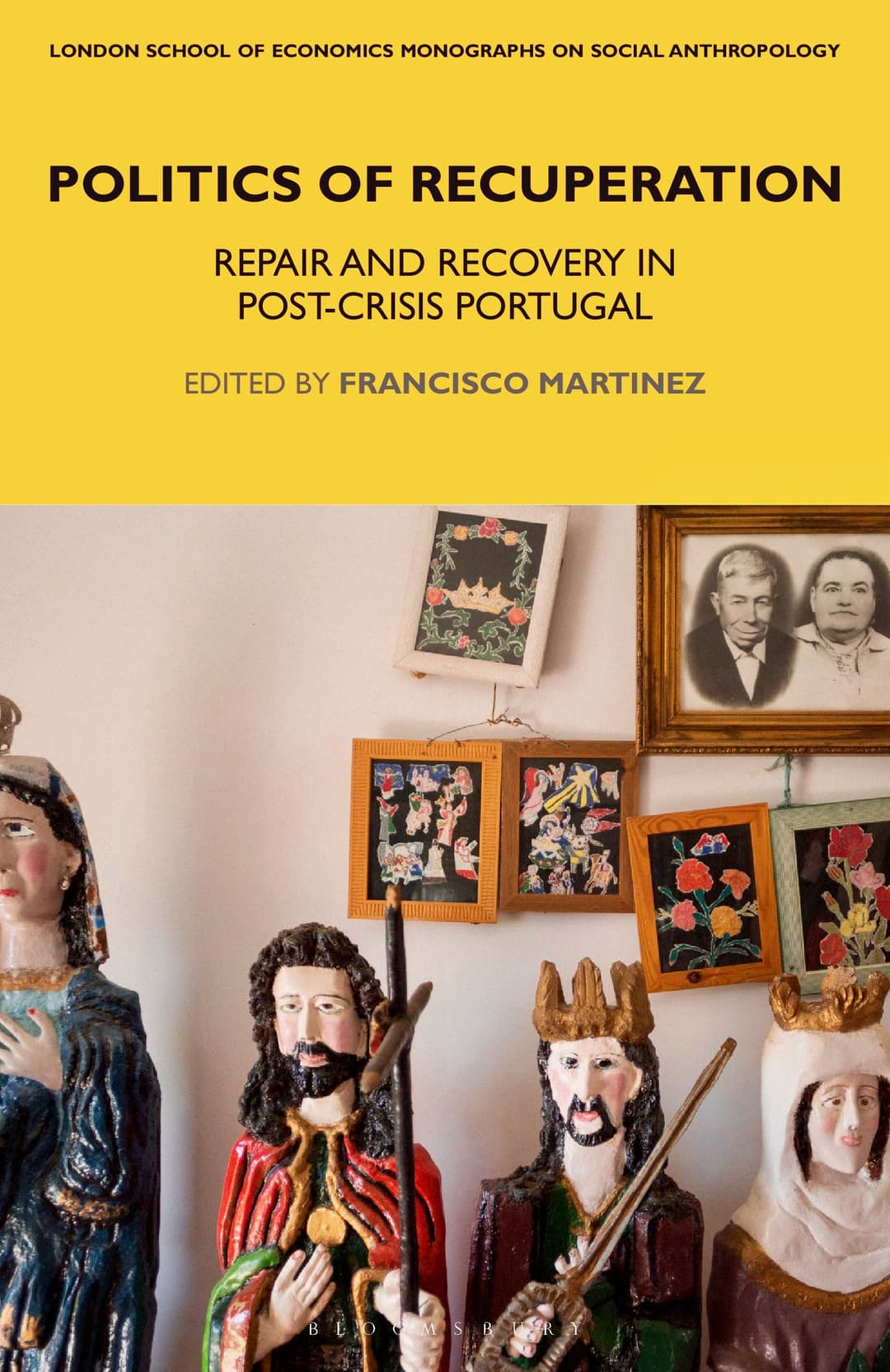
Repair and Recovery in Post-crisis Portugal
Bloomsbury 2020
This book studies how Portuguese society has rebuilt itself after the crisis. Through a range of ethnographic case studies focusing on the Portuguese recovery, it begins a conversation about the experience of recuperation and repair. The research addresses how recovery adds a human dimension to the public sphere and expands our conception of what constitutes the political. Located in the cracks between the state and society, this collection takes a thorough look at a society in crisis and shows how the people of the community create micro-politics of resistance, reflecting on the limits and interstices of contemporary politics.
Praise
This book opens a fascinating window into the meaning of personal and collective resilience in Europe today. The crisis came, it ravaged a whole generation, but did it stop it? No! This is a book about rebuilding after the hurricane of financial oppression. But it is also a reflexion about the limits and margins of contemporary democracy. The Portuguese response to externally enforced ‘austerity’ is surely a prime illustration of the creative forces that lurk within Europe’s internal margins.
João de Pina Cabral, University of Kent
This book presents a vivid description of the intense financial crisis that devastated Southern Europe from 2007 onwards, hitting with special intensity the most vulnerable populations. Nonetheless the dramatic period, the diverse accounts offer insightful ethnographies that describe how citizen inventiveness coped with the collapse of their social worlds. They offer us an alternative narrative to the one condemning urban dwellers to the role of passive subjects of dispossessions. Recuperation is proposed as a theoretical figure that unveils that modest activities of mending, care and engagement entail a hopeful of reparation of the political sphere. This is a book offering hope and resources to dwell in a world that seems to be heading to a permanent state of crisis.
Adolfo Estalella, Madrid Complutense University
Transcending the analytical divide between European city contexts and those located in the Global South, the different contributions in this timely book offer a richly detailed tapestry and in-depth exploration of the ‘resonant micropolitics’ of crisis and its immediate aftermaths across Portugal. In doing so, this broad range of scholars open up anthropological vistas of recuperation and repair, thereby enlarging our understanding of the possibilities for regenerating living together in today’s broken worlds.
Filip De Boeck, University of Leuven
I really like the ethnographic sensibility that the contributors bring to the material and the way the collection approaches socially embedded practices of repair and recuperation. Since the experience of living under difficult conditions is so widespread in the world today, the themes of recuperation and repair make this book useful for a broad range of scholars who are interested in how people manage their lives under constrained circumstances. At the same time, the grounded ethnographic approach makes the book essential reading for anyone working in the field of Portugal studies.
Matt Rosen, Ohio University
Martínez’s introduction does a thorough job of setting out the generative possibilities for studying brokenness and repair. In sum: breakdowns make relations visible; when we understand brokenness and repair as processes rather than states, these become productive starting points for tracing heterogeneous and intertwined relationships that move outwards, involving the constitution of wider social and political orders… It explores not only the material interrelations of brokenness and repair, but also their ethical and affective entanglements…This represents the most compelling contribution of the volume as a whole.
Lara Houston, AJEC
Para além da inovação teórico-conceptual forjada pelas ideias de recuperação e reparação, o livro dialoga com uma agenda epistemológica cada vez mais interessada em desenvolver metodologias pós-antropocêntricas, que exaltam a agencialidade das coisas e a sua capacidade para reproduzir ou transformar estruturas, relações e subjetividades. Além disso, abre novas linhas de investigação nos debates sobre a resposta à crise no contexto português, reforçando a necessidade de ir além da esfera pública e mapear os esforços regenerativos materializados no seio da vida privada… Investigar a recuperação é reconhecer a dimensão política do quotidiano e o papel desempenhado por pequenos gestos no compor e recompor do mundo. Neste contexto, a recuperação é entendida como uma forma de micropolítica.
João Terrenas, ANUAC
